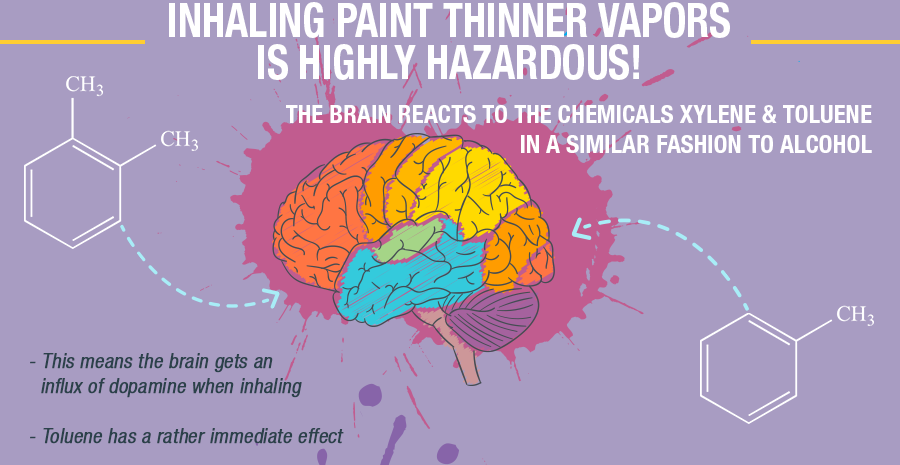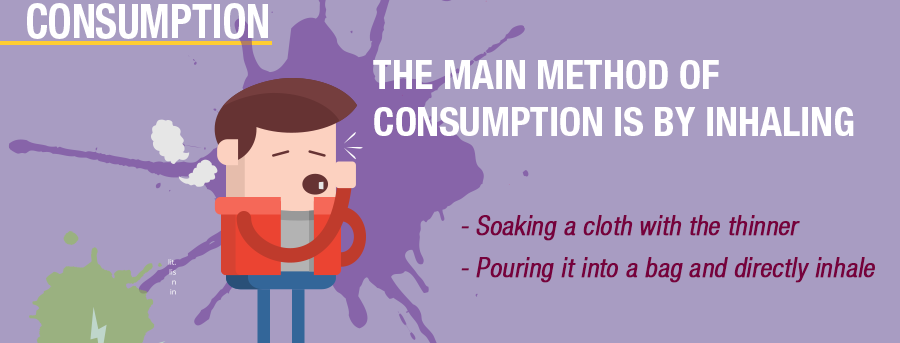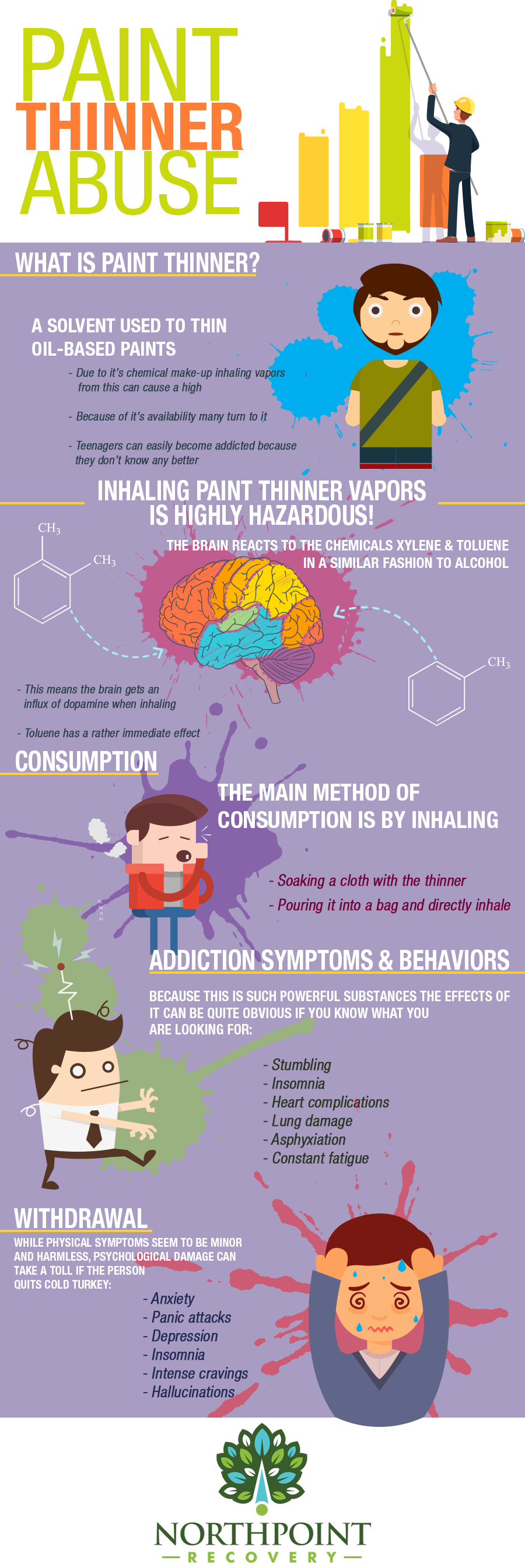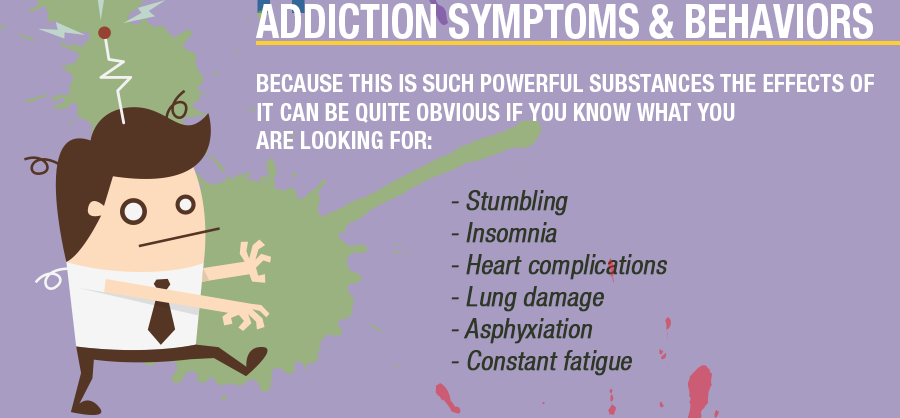
Paint Thinner Addiction Symptoms and Behaviors
Perhaps you’re a parent and you’re concerned about whether or not your child has been using paint thinners. It’s possible that you’ve even been using them because you weren’t able to obtain other drugs due to financial reasons. Paint thinner addiction behaviors and symptoms can include:
- Problems with walking or staggering
- Trouble sleeping, including insomnia
- Heart and lung damage
- Risk of heart attack
- Asphyxiation
- Constant fatigue
It’s clear that paint thinners are very dangerous, and the risks associated with using them even one time are very prominent. Stopping them might not be easy, but it’s not impossible as long as you have the proper level of support.
How do I Know if My Child is Using Paint Thinners or Other Inhalants?
As a parent, it's natural to be concerned about your child using a drug like paint thinners. However, if you're not careful, you could miss the signs that they're using them. You may begin to notice your child demonstrating any of the following:
- Appearing drunk with slurred speech
- Seeming disoriented
- Easily nauseated
- No interest in food
- Widely dilated pupils
- Impaired judgment and taking dangerous risks
In the short term, you may notice that your child always has a runny or red nose. Your teen may sweat a lot or have rashes or sores around the mouth or nose. Their skin may appear to be very pale and you may even notice that they're having hallucinations.
It's a scary realization to find that your teenager has been huffing paint thinners. If you're vigilant, you may be able to notice the abuse of them before it gets too far.
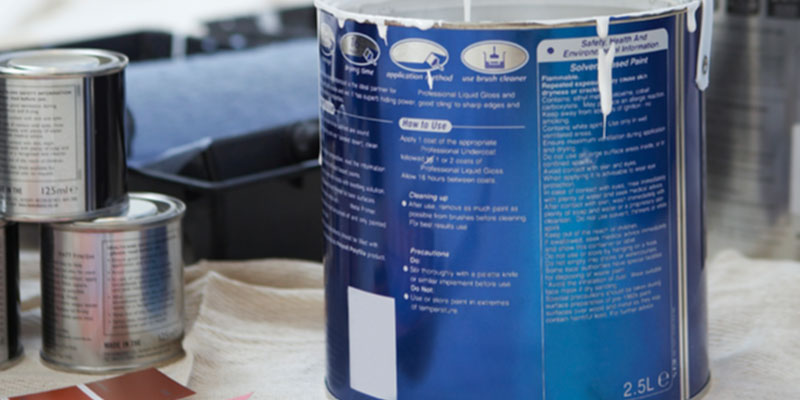
Paint Thinner Withdrawal: Are You at Risk?
Fortunately, there are no documented physical symptoms of paint thinner withdrawal. However, that does not mean that stopping them abruptly doesn’t have its risks. The psychological withdrawal symptoms associated with using paint thinners are, indeed, very real, and they’re the reason why so many people go back to using when they try to quit on their own.
Some common paint thinner withdrawal symptoms may include:
- Increasing anxiety or panic attacks
- Increasing symptoms of depression
- Insomnia or other sleep disturbances
- Intense cravings for paint thinners
- Occasional hallucinations
The course of action for coming off paint thinners is usually paint thinner addiction treatment. However, depending on your situation, you may be recommended for drug detox in addition to that. It’s best to talk with a professional and discuss your personal situation.
For anyone who abuses paint thinners long-term, the results can be disastrous. They may end up suffering from serious effects, such as:
- Severely weakened muscles
- Bouts of disorientation
- Problems paying attention
- Coordination issues
- Severe weight loss
- Symptoms of depression
- Constant irritability
Some of the effects of paint thinners can't be reversed. It's possible to suffer from:
- Brain damage
- Central nervous system damage
- Limb spasms
- Problems within the bone marrow
- Hearing loss
- Liver damage
- Kidney damage
How to Talk With Your Child About Addiction
As a parent, it's important to know how to talk with your child about addiction. No matter how hold they are, it's not easy to know what to say. For younger children, it's important that they know you're there for them. Before the age of ten, kids understand what it means to want something really bad, but not be able to get it. This is a good way to bring it up to them.
Between the ages of 10 and 12, it's important not to lecture kids about addiction. It's OK to talk with them about a loved one's addiction, for example. However, avoid presenting facts and figures to them. Just be truthful in identifying what the problem is.
When a child becomes a teenager, their ability to understand improves. If they think you're not being honest, they'll stop listening. You can let them know the truth, but again, avoid lecturing. If you have an addicted family member, make sure your child knows that it's not their fault. Use your child's experience in dealing with an addicted loved one to back up what you say.
Above all, let your child know that it's safe and encouraged to come to you if they have concerns. This is really important, and you should say it often.
Is Paint Thinner Abuse and Addiction Treatment Covered by Insurance?
Yes, if you or a loved one need addiction treatment for a paint thinner addiction, insurance will cover it. All you need to do is contact a drug rehab and have your insurance verified. You'll find out what your benefits are right away.
Verify Your Insurance

